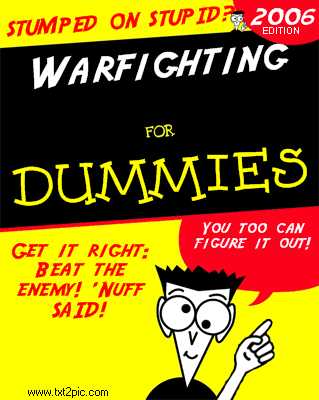Vietnam, the ISG, and ADM U.S Grant Sharp
December 6th, 2006 by xformed
I read “Strategy for Defeat” many years ago, back in the days in Newport, RI, while studying such issues, and not promted by any reading list.

The book, written from the viewpoint of the admiral who was CINCPAC (Commander-in-Chief, Pacific), so he was well breifed in as to the “goings on” of the time.
I am working from recall, but Adm Sharp’s premise is the “doves” were the ones who caused the prolonging of the war and therefore the bloodshed, on all sides, and the “hawks” would have had the war come to a much faster conclusion. As a result, his contention was the hawks were actually the ones who would have saved lives.
His thesis was supported, in one chapter, by the story of a major sea port, aerial mines and “peace” talks…..
He said in 1968, he had forwarded a battle plan to mine Haiphong Harbor. The plan was rejected, because Washington felt Soviet ships (that were delivering war materials to the North Vietnamese) might become victims of the functional blockade and therefore a major international incident would be caused.
When the plan was finally executed in 1972, the North Vietnamese were at the Paris Peace Talks and actually talking, as their logistical “tail” had been strangled. This is more important in the light of the conflict between China and Russia as to who was “more senior” in the Communist world, and China was denying the Soviets the use of Chinese railways to send material to Vietnam. Being forced to get their major resupply by sea, and the major seport, with the capacity to offload the items, was cut off. The North Vietnamese quickly become more argeeable in figuring out how to back away from the conflict.
This is a lesson in strategy (recall who were the presidents in the two years listed above), and a show of force (or not when the capability existed), which managed to clearly and consisely communicate to our enemy we meant business. If you think about the metod used, there didn’t even have to be casualties, as the mines become “guards” on the sea ways, and would kill and maim the enemy only when the beligerent chose to cross the area.
Category: Geo-Political, History, Military, Military History, Navy, Political | 2 Comments »

